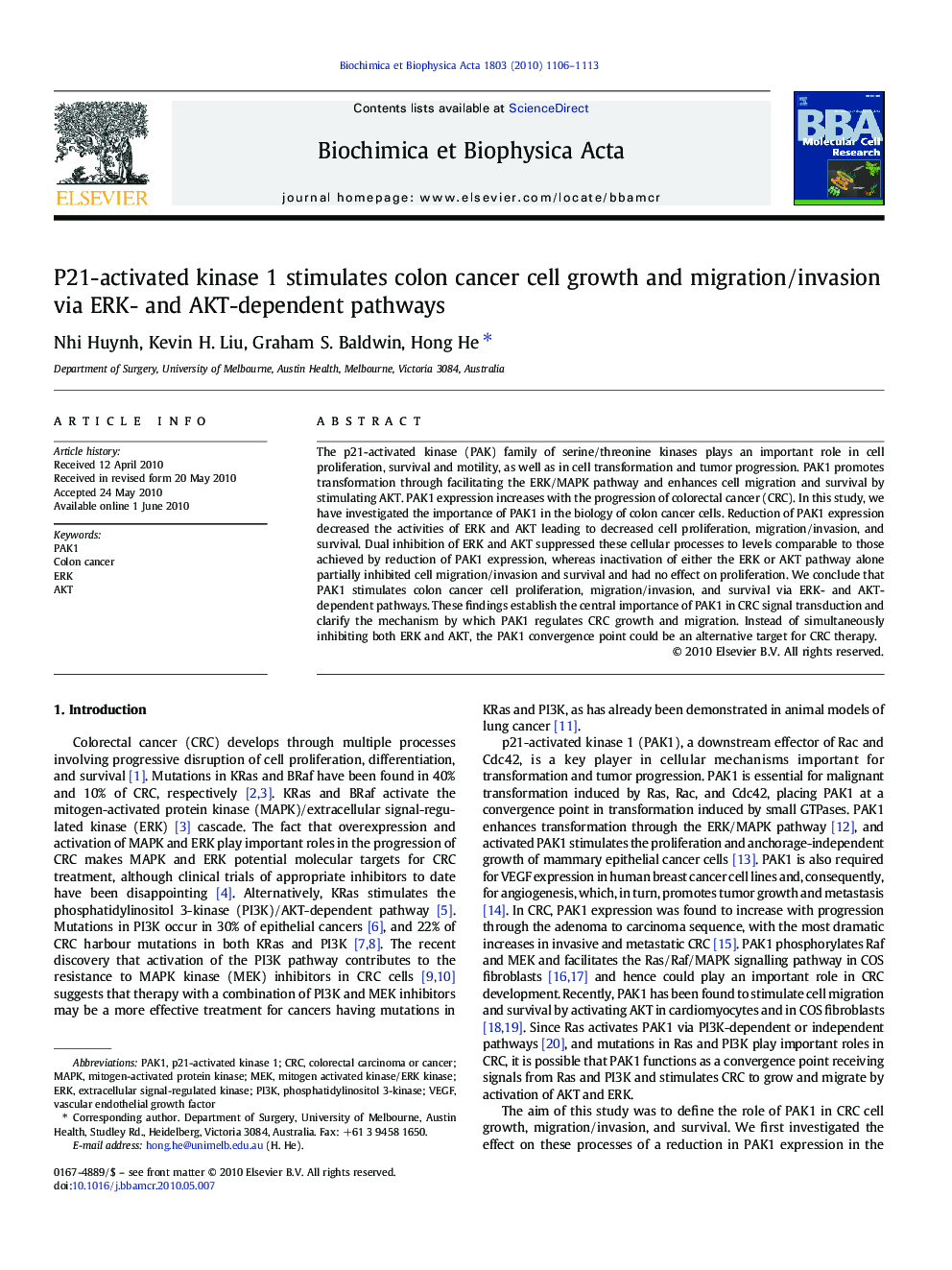| Article ID | Journal | Published Year | Pages | File Type |
|---|---|---|---|---|
| 1950938 | Biochimica et Biophysica Acta (BBA) - Molecular Cell Research | 2010 | 8 Pages |
The p21-activated kinase (PAK) family of serine/threonine kinases plays an important role in cell proliferation, survival and motility, as well as in cell transformation and tumor progression. PAK1 promotes transformation through facilitating the ERK/MAPK pathway and enhances cell migration and survival by stimulating AKT. PAK1 expression increases with the progression of colorectal cancer (CRC). In this study, we have investigated the importance of PAK1 in the biology of colon cancer cells. Reduction of PAK1 expression decreased the activities of ERK and AKT leading to decreased cell proliferation, migration/invasion, and survival. Dual inhibition of ERK and AKT suppressed these cellular processes to levels comparable to those achieved by reduction of PAK1 expression, whereas inactivation of either the ERK or AKT pathway alone partially inhibited cell migration/invasion and survival and had no effect on proliferation. We conclude that PAK1 stimulates colon cancer cell proliferation, migration/invasion, and survival via ERK- and AKT-dependent pathways. These findings establish the central importance of PAK1 in CRC signal transduction and clarify the mechanism by which PAK1 regulates CRC growth and migration. Instead of simultaneously inhibiting both ERK and AKT, the PAK1 convergence point could be an alternative target for CRC therapy.
